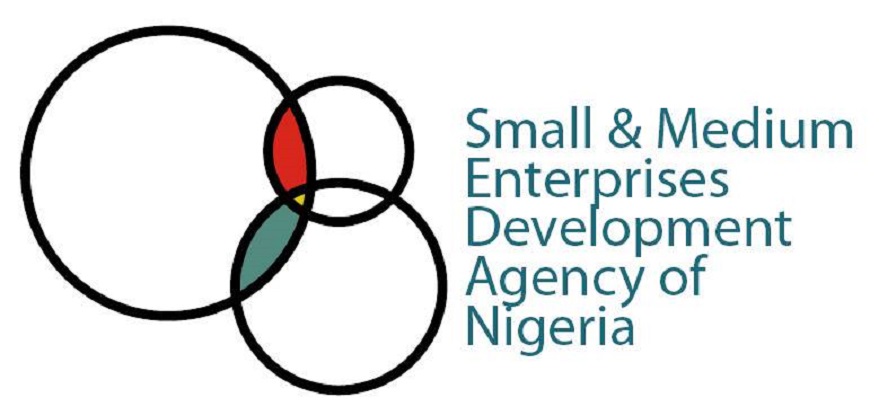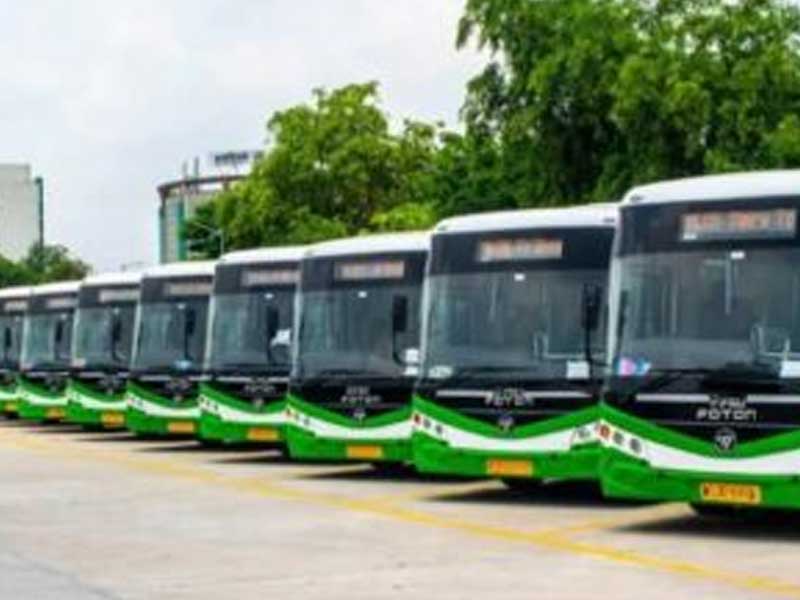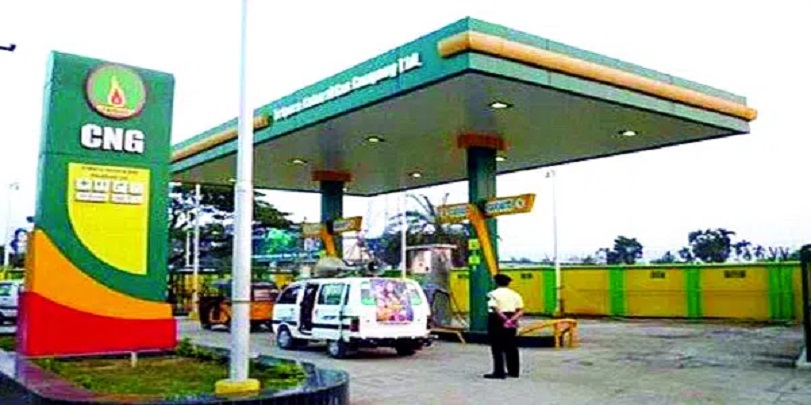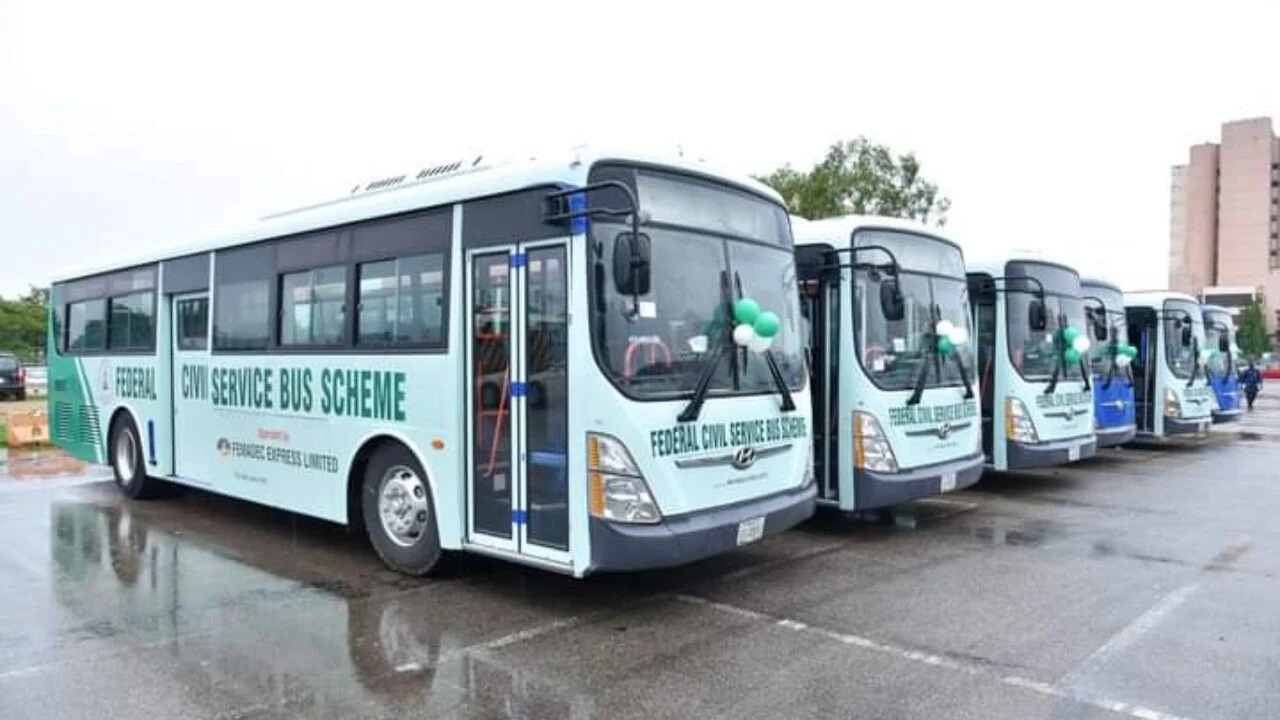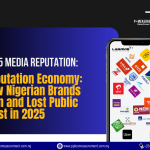Auto
FG Moves to Adopt CNG for Public Transportation Across States
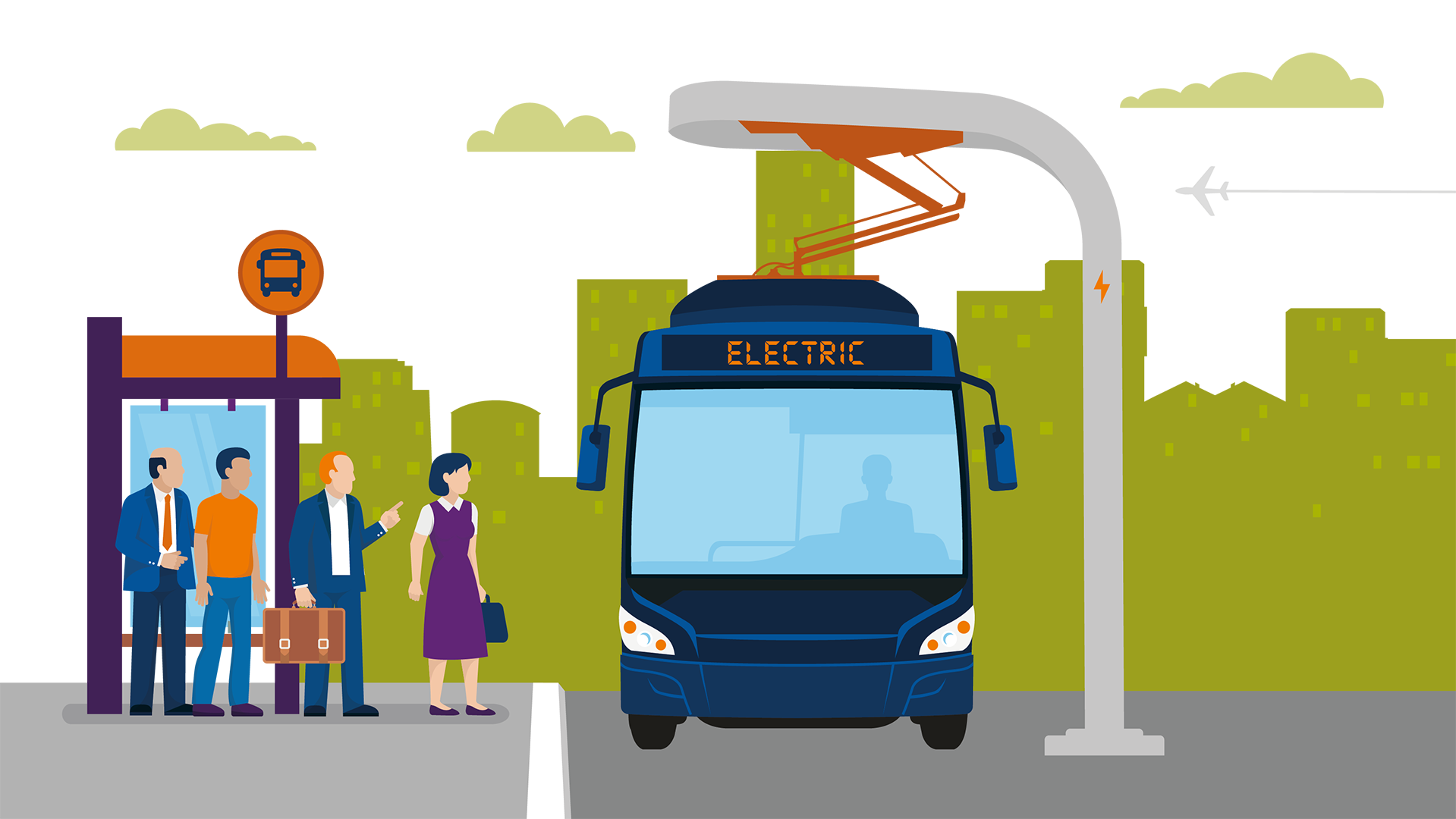
By Adedapo Adesanya
The federal government, as part of the effort to drive alternative fuelling options through the National Economic Council (NEC), has endorsed the proposed mass deployment of Compressed Natural Gas (CNG) vehicles to all states for public transportation.
The Director of Information in the Office of the Vice President, Mr Olusola Abiola, in a statement, said the decision was part of resolutions reached at the fourth meeting of the Council, chaired by Vice President Kashim Shettima, at the State House Executive Council Chambers on Thursday.
Mr Abiola explained that the decision was taken after a presentation by the NEC Ad hoc Committee on cushioning the effect of petrol subsidy removal was made by Governor Chukwuma Soludo of Anambra state.
Speaking after deliberations on the presentation, Mr Shettima said, “We will also pursue vigorously the mass deployment of CNG-powered vehicles and establishment of autogas conversion plants/kits in all states in the short-term.
“We will also deploy electric buses and cars with charging infrastructure across the country.”
He also revealed that the meeting resolved to support enhanced engagements between state governors and the leadership of the labour unions across the states and proposed the provision of the cost-of-living allowances to be paid to civil servants in both the state and federal civil services.
CNG is a fossil fuel substitute for petrol, diesel fuel or propane/LPG. Its combustion does not produce greenhouse gases. It is a more environmentally clean alternative to petrol and diesel fuel and much safer than other fuels in the event of a spill.
The FG, since the erstwhile administration of President Muhammadu Buhari, had touted it as an alternative to reduce the expensive cost of petrol.
However, with the recent removal of subsidy by the Bola Tinubu administration, the interest has picked up again, with more people calling for its adaptation to mitigate the impact of the recent removal of fuel subsidy is experiencing some challenges.
However, cautious Nigerians remain sceptical about its safety as well as the cost of conversion.
Auto
Demolitions: inDrive Shares N75m Relief Packages to Displaced Lagos Residents

By Modupe Gbadeyanka
Over N75 million worth of relief materials have been provided by foremost ride-hailing platform, inDrive, to residents of Lagos State displaced by recent demolitions in the metropolis.
The company partnered with Tolu Aniwura Welfare Foundation (GenerousMe) to distribute essential food, clothing, and school supplies to more than 2,000 affected individuals and families.
At the distribution of the items at St. Paul Catholic Church, Ebute-Metta, the Country Representative for inDrive Nigeria, Mr Timothy Oladimeji, explained that the initiative reflects the company’s people-first approach and its commitment to responding directly to urgent community challenges while maintaining a focus on long-term empowerment across its markets.
“At inDrive, we believe that our responsibility goes beyond providing mobility services; it extends to standing with communities during moments of need.
“The recent demolitions left many families vulnerable, and through our partnership with GenerousMe, we were able to respond quickly and responsibly. This intervention reflects our commitment to fairness, empathy, and ensuring that people remain at the centre of everything we do,” Mr Oladimeji said.
It was gathered that the support also extended to individuals who had previously benefited from inDrive-backed social impact programmes, reflecting the company’s continued commitment to empowering vulnerable communities across Nigeria.
The relief packages included essential dry food items such as rice, beans, garri, noodles, spaghetti, cooking oil, tomato paste, seasoning cubes, and salt. Beneficiaries also received clothing, blankets, sleeping mats, mosquito nets, rechargeable lamps, power banks, and baby care items, as well as school packs containing bags, exercise books, and writing materials for children.
In his remarks, the Partnerships Lead for GenerousMe, Mr Adetola Alade, said, “Partnering with inDrive enabled the timely and coordinated delivery of aid. We prioritize speed and collaboration in responding to urgent humanitarian needs, and working with inDrive on this project was a great experience.”
Auto
UK to Facilitate Quick Return of Stolen $9.5m for Abuja-Kano Road
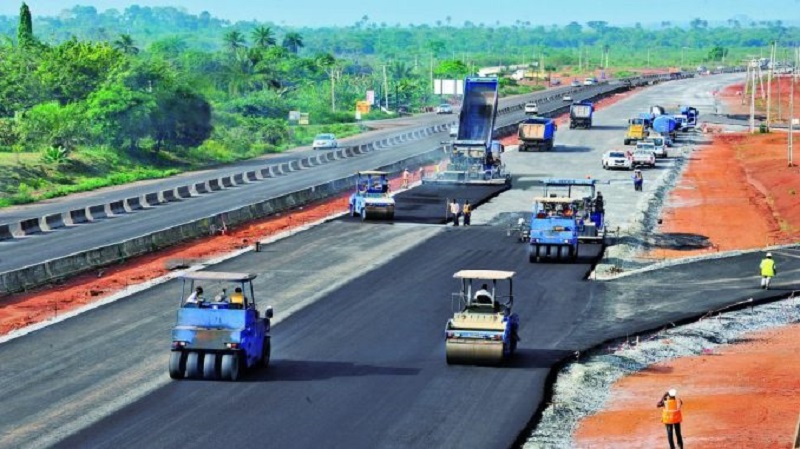
By Adedapo Adesanya
The United Kingdom is facilitating a quick process to return $9.5 million in recovered stolen funds to Nigeria to help fund the completion of the ongoing Abuja-Kano Road.
According to a statement on Friday, His Majesty’s Attorney General for Jersey, Mr Mark Temple, signed a Memorandum of Understanding (MOU) in December 2025 to facilitate the return of the loot.
Recall that on November 29, 2023, the Attorney General applied to the Royal Court of Jersey under the Forfeiture of Assets (Civil Proceedings) (Jersey) Law 2018 in respect of tainted property held in a Jersey bank account. On January 12, 2024, the Royal Court granted a forfeiture order after determining that the funds were more likely than not the proceeds of a corrupt scheme in which third-party contractors diverted government monies for the benefit of senior Nigerian officials and their associates.
The MOU builds on two previous agreements between Jersey and Nigeria, under which more than $300 million has already been repatriated to support three major infrastructure projects: the Lagos-Ibadan Expressway; the Second Niger Bridge; and the Abuja-Kano Road. The first two projects are now complete.
Under the terms of the MOU, the forfeited funds will contribute to the final stages of the Abuja-Kano Road, a 375 km highway that will provide a vital link between Nigeria’s capital and its second-largest city.
Speaking on the development, Mr Temple, said: “This successful return demonstrates the strength of our civil forfeiture legislation as a powerful tool in the fight against corruption. I thank the Nigerian authorities for their cooperation and the Economic Crime and Confiscation Unit in my Department for their unwavering commitment to recover the proceeds of crime.”
Adding his input, the Attorney General of the Federation and Minister of Justice, Mr Lateef Fagbemi said, “The successful recovery and repatriation of the forfeited assets, underscores the effectiveness of Nigeria’s collaborative efforts with its international partners in ensuring that there is no safe haven for illicitly acquired wealth or assets moved to foreign jurisdictions.”
“I want to, on behalf of the Government of the Federal Republic of Nigeria, thank the Bailiwick of Jersey for the cooperation accorded Nigeria during the Recovery exercise. I want to further assure the Bailiwick of Jersey, that the repatriated assets will be judiciously utilized in line with the terms of the executed Memorandum of Understanding,” he added.
Auto
Lagos Gives Motorists Three-Month Rebate to Replace Faded Number Plates
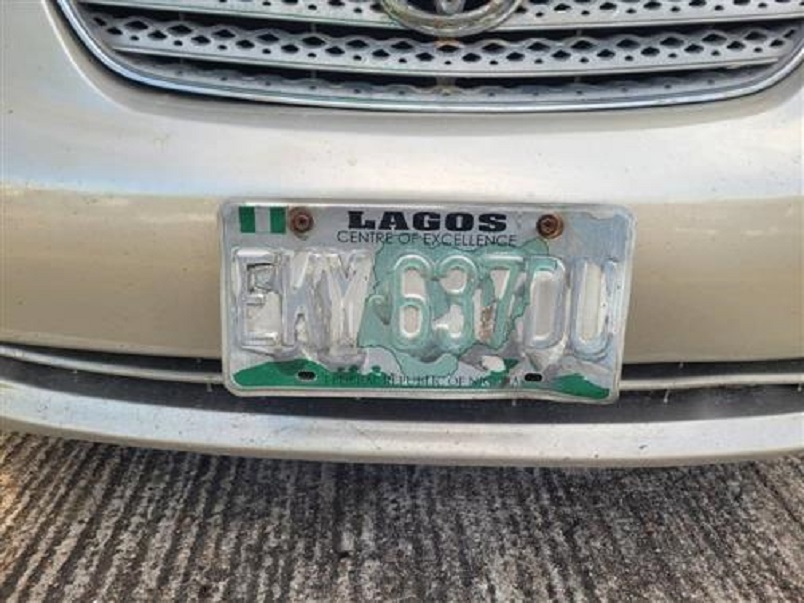
By Modupe Gbadeyanka
Motorists in Lagos State with faded and unreadable vehicle number plates have been given a three-month rebate window to replace them.
This followed the approval of the 90-day exercise by the Lagos State Governor, Mr Babajide Sanwo-Olu, according to the Permanent Secretary for Motor Vehicles Administration Agency (MVAA), Mr Rasheed Muri-Okunola.
The state government disclosed that the rebate applies specifically to vehicle owners whose number plates have become worn, faded, or unclear over time due to weather conditions and prolonged use.
It noted that the gesture is a proactive and citizen-friendly intervention aimed at encouraging compliance while reducing the financial burden on vehicle owners.
According to Mr Muri-Okunola, the Governor authorised the rebate as part of renewed efforts to enhance road safety, improve vehicle identification, and strengthen security across the state.
It was emphasised that the condition of vehicle number plates is critical to effective traffic management, crime detection, and overall public safety, noting that faded or illegible plates pose challenges to law enforcement agencies and traffic officials.
The government noted that that beyond aesthetics, legible number plates play a vital role in curbing traffic violations, aiding investigations, and supporting digital vehicle tracking systems deployed by the state.
Motorists were, therefore, encouraged to take advantage of the window by visiting the agency’s designated Pilot Centre at Oshodi (MVAA One Stop Centre, Oshodi) or any MVAA Stations across the state for the replacement process.
“Clear and properly maintained number plates are essential for vehicle identification and security. This three-month rebate is designed to give motorists ample opportunity to replace faded plates at a reduced cost while supporting our collective responsibility to keep Lagos roads safe and well-regulated,” Muri-Okunola stated.
“This is not just a regulatory exercise; it is a public safety measure. When number plates are clear and standardised, it improves efficiency across transportation, security, and emergency response systems,” he added.
Mr Muri-Okunola assured the public of seamless service delivery throughout the rebate period and advised motorists to avoid unauthorised agents, stressing that all replacements must be processed through designated government-approved centres.
He reiterated the Lagos State Government’s commitment to innovative policies that prioritise safety, convenience, and accountability while urging residents to cooperate with authorities in building a safer and more orderly transport environment.
-

 Feature/OPED6 years ago
Feature/OPED6 years agoDavos was Different this year
-
Travel/Tourism9 years ago
Lagos Seals Western Lodge Hotel In Ikorodu
-

 Showbiz3 years ago
Showbiz3 years agoEstranged Lover Releases Videos of Empress Njamah Bathing
-

 Banking8 years ago
Banking8 years agoSort Codes of GTBank Branches in Nigeria
-

 Economy3 years ago
Economy3 years agoSubsidy Removal: CNG at N130 Per Litre Cheaper Than Petrol—IPMAN
-

 Banking3 years ago
Banking3 years agoSort Codes of UBA Branches in Nigeria
-

 Banking3 years ago
Banking3 years agoFirst Bank Announces Planned Downtime
-

 Sports3 years ago
Sports3 years agoHighest Paid Nigerian Footballer – How Much Do Nigerian Footballers Earn



